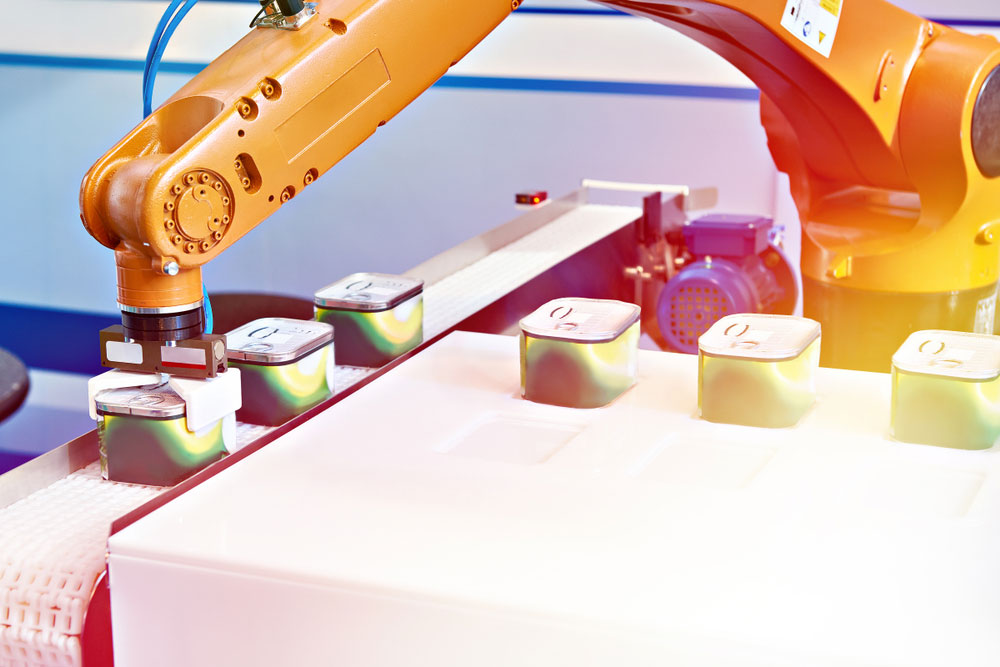The Natural & Organics Show (NOPEX) will be taking centre stage once more at…

Latest Developments in Food Technology
Delivering new products, changing business models, adjusting to changes in consumer demands, investing in innovation in various forms, and facing tough realities, the world of food is markedly different over the last twelve months contends the latest Rabobank Talking Points bulletin. How true this is: the pace of change is escalating.
Elizabeth Winkler posed a conundrum in her article, ‘Are City Start Ups a help or hindrance to local food?’ She was referring to the current trend for cooking enthusiasts to prepare ingredients from recipe boxes, rather than support their local farms. She maintains that small-scale farmers are the foundation of sustainable food and that buying directly from them is supporting economic and environmental sustainability.
Food Navigator USA reported that Oregon-based Socati, pioneers of hemp-derived CBD, have raised $33m to scale production of THC-free full spectrum hemp extract. Chief Revenue Officer, Mark Elfenbein, commented ‘a hemp extract containing no more than 0.3% THC is easier to produce than a 0.0% extract because it is what the hemp plant naturally contains’. Looking ahead, Elfenbein believes that almost every small and large CPG company is developing its plan to market with a CBD or full spectrum hemp extract product.
In the UK, a different type of farm made the headlines recently when it was reported that a robot called Frank is assisting ‘Britain’s first ‘vertical farm’ to produce its first crop of plants at a Scunthorpe warehouse. In a scene like a futuristic film set, Frank gathers up plant trays and takes them to the seeding, germination and ultimately harvesting areas. Frank’s four human colleagues never actually touch the plants themselves and the controlled environment ensures that crops are not affected by normal seasonal cycles. Jones Food Company runs the farm, designed to produce 500 tonnes of plants annually without a single grain of soil.
The Israeli restaurant technology firm, Simple Order, has developed a digital inventory management system which enables restaurant operators to match food purchases with existing stock and future purchasing needs. This not only improves communication between suppliers, retailers and the entire food chain, but also substantially reduces food waste. Now acquired by US Upserve, the software is being marketed as Upserve Inventory and is being used by thousands of restaurants in over 25 countries. Angus Jones, the founder of Upserve commented, ‘Customers using Upserve Inventory save 30-50 hours every month and report 5-8% improvement in their margins. Simply put, if your restaurant doesn’t have it, your profit margins are suffering’.
In Seattle, Starbucks has opened an exciting retail concept which serves pizza, focaccia and other Italian baked products up to midday and cocktails, beer, wine and spirits in the afternoon. The décor is inspired by Princi’s original Milan bakery and Starbucks VP, Christian Davies explained, ‘Your first impression is the abundance and seduction of food. That’s what we’re trying to create with a distinctly Italian look and feel to bring that passion to life’. There are plans to expand this exciting concept to all new Starbucks Reserve Roastery locations in other American locations, as well as Tokyo and Milan.

A new research network called ‘The Internet of Food Things’ has been launched to examine how the food industry can be transformed by ‘smart’ cooking appliances, data driven supermarket refrigeration networks and enhanced traceability systems. Computer scientists, chemists and economists will combine their expertise to investigate how artificial intelligence and emerging technologies can optimise the UK food supply chain. Businesses and researchers will also participate through workshops and annual conferences nationally in order to share best practice across the sector.
A global organisation, NIZO Food Research, is also leading the way in contract research for better food and health. A new joint venture with Process Systems Enterprise (PSE): The Centre of Excellence (CoE) for Food Product and Process Modelling introduces a comprehensive, advanced food process-product model library. The objective is to accelerate sustainable process development, optimise processes and reduce time to market for new products.
Start-Ups UK is an organisation for championing UK businesses and has awarded its best ‘Start Up’ accolade to Jennifer Earle’s ‘Taste Tripper’ business. Jennifer’s motto has always been, “My favourite way to travel is by exploring the food’, and hopes Taste Tripper will allow others to experience great food and drink in London and other UK locations. Living up to its billing as ‘the perfect foodie gift’, the explorer pack comes with a special code to unlock tasters and special deals at each location by simply using a phone. London’s Chocolate Explorer, Coffee Explorer and Craft Beer Explorer are just some of the options which are already successful.
Ground-breaking developments in food technology continue to make a huge impact in every corner of the globe and enhance quality of life of millions of people. In Kenya, where poor storage and distribution facilities have previously been the dominant factor, a revolutionary system has been developed by TWIGA Foods to provide a complete supply chain for ensuring quality produce in urban areas. A cashless B2B supply platform is used to develop links between smallholder farmers in rural areas and retail vendors in cities; the company can now safely deliver a wide variety of fresh produce from its 15 collection centres and fleet of 100 vehicles.




